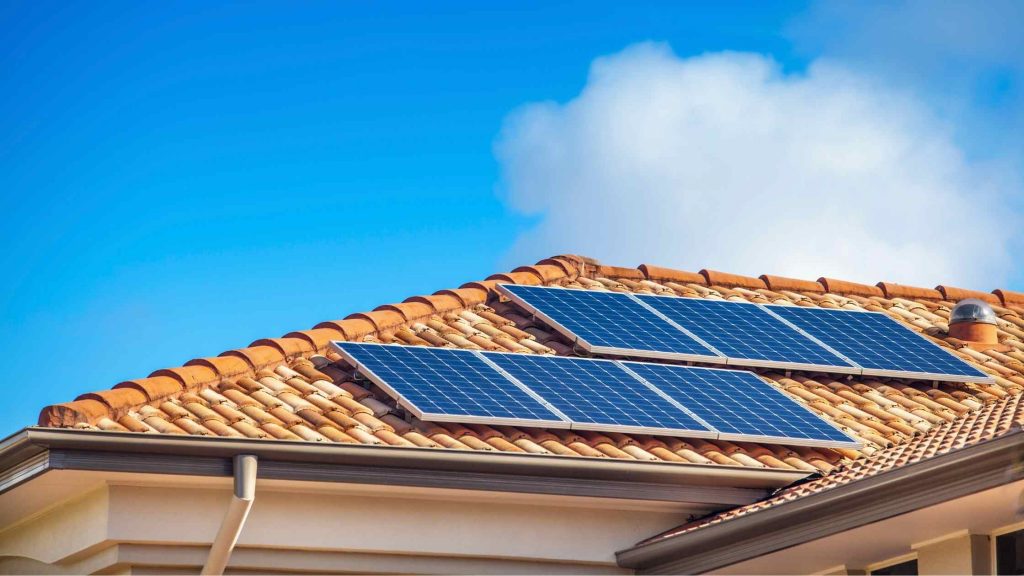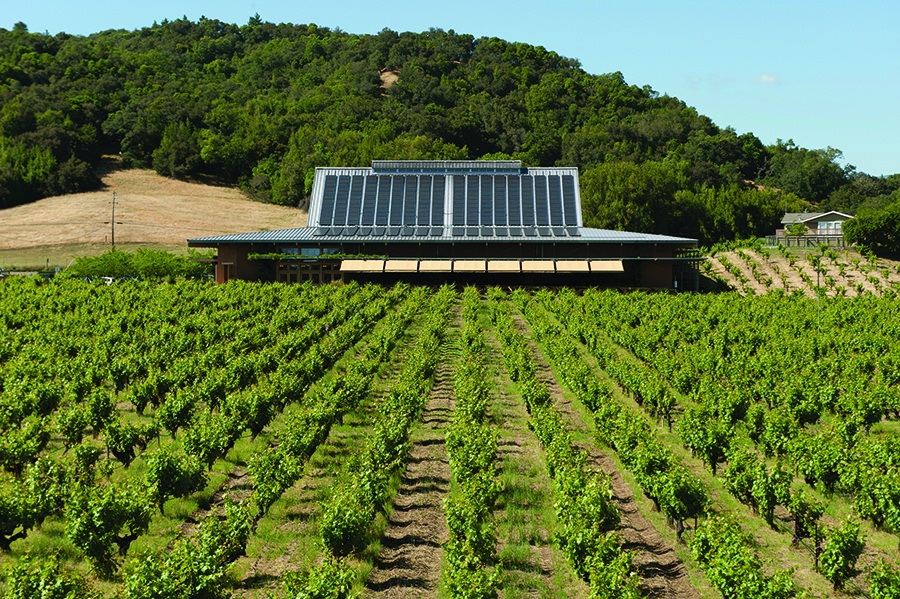If you’re considering solar panels for your home, you’re likely wondering how they work. How do the panels convert sunlight into usable energy? How does this impact your electricity bill? In this guide, we will answer all of your questions about solar panel operation and explain how they can benefit your home!
What are solar panels made of?
Solar panels are made of a material called silicon, which is a semiconductor. When sunlight hits the silicon, it causes electrons to be knocked loose from their atoms. These free-flowing electrons are captured by metal conductors, and this flow of electricity is then harnessed to power your home.
How solar panels generate electricity
Solar panels generate electricity by converting sunlight into direct current (DC) electricity. The panels are made up of photovoltaic cells, which use the photons from the sun to generate an electric field. This process is known as the photovoltaic effect.
The DC electricity generated by the solar panels is then converted into alternating current (AC) electricity by an inverter. AC electricity is the type of electricity used in your home. The solar panels are connected to the inverter by wires, and the inverter is usually mounted on the side of your house or a nearby pole.
The AC electricity generated by the inverter is then sent to your home’s electrical panel, where it can be used to power your lights, appliances, and other electrical devices. Any excess electricity that is not used by your home is sent to the utility grid.
How Solar Panel and Grid Connection Works
Solar panel and grid connection work by connecting your solar panel system to the utility grid. This is done by a device called an inverter. The inverter takes the DC electricity generated by your solar panels and converts it into AC electricity, which is the type of electricity used in your home.
As mentioned previously, the AC electricity from the inverter is then sent to your home’s electrical panel and from there, it powers your lights and appliances. Any excess electricity that is not used by your home is sent to the utility grid.
When you generate more electricity than you use, your utility company will give you a credit on your bill. This is called net metering, and it ensures that you only pay for the electricity that you use.
On-Grid vs Off-Grid Solar Panels
On-grid solar panel systems are connected to the utility grid, while off-grid systems are not. Off-grid solar panel systems are typically used in remote locations where it is not feasible to connect to the utility grid.
The main advantage of on-grid solar panel systems is that you can sell any excess electricity that you generate back to the utility company. This is called net metering, and it ensures that you only pay for the electricity that you use.
Off-grid solar panel systems, on the other hand, are not dependent on the utility grid. This means that if there is a power outage, your solar panel system will still be able to generate electricity. However, off-grid solar panel systems are typically more expensive than on-grid systems because you will still need solar battery banks to store energy during the day and use it at night.
What Is Solar Inverter and Why Is It Important?
A solar panel inverter is a device that converts the DC electricity generated by your solar panels into AC electricity. The inverter is usually mounted on the side of your house or a nearby pole.
The inverter is an important part of a solar panel system because it ensures that the electricity generated by your solar panels is compatible with the electrical devices in your home. Without an inverter, you would not be able to use the electricity generated by your solar panels.
Advantages of solar panels
Having solar panel in your home offer several benefits. First, they can help you save money on your electricity bill. Solar panels can offset a significant portion of your electricity usage, and in some cases, they can eliminate your electricity bill.
Solar panels also increase the value of your home. Homes with solar panels typically sell for more than homes without them. Solar panels can also help you become more energy independent and reduce your reliance on the utility grid.
Do solar panels work at night?
Yes, solar panels definitely work at night. However, they are not as effective at night as they are during the day. This is because solar panels need sunlight to generate electricity.
At night, your solar panels will still generate some electricity, but it will be a much smaller amount than what they generate during the day. However, if you have a battery system connected to your solar panels, the panels can charge the battery during the day, and then the battery can power your home at night.
Do solar panels work during cold weather?
The answer is again yes. Solar panels actually work more efficiently in cold weather than they do in hot weather. This is because solar panels need sunlight to generate electricity, and the sunlight is more intense in cold weather than it is in hot weather.
Solar panels will still generate electricity during cloudy days, but they will be less effective on those days. If you live in an area with a lot of cloudy days, you may want to consider adding a battery system to your solar panels so that you can store electricity for those days.
Reasons solar panels won’t work
You’ve done the installation but your solar panels still won’t work? There could be a number of reasons for this.
The most common reason solar panels don’t work is that they are not receiving enough sunlight. This can be due to a number of factors, such as trees or buildings shading the panels, or simply because the location of your home doesn’t get much sun. Another common reason is that the panels are not properly oriented towards the sun. The panels need to be facing the sun in order to work effectively.
Problems with the inverter might cause your solar panels not to work as well. The inverter is responsible for converting the DC electricity generated by the solar panels into AC electricity, so if it isn’t working properly, the solar panels won’t be able to generate electricity.
Finally, there could be a problem with the wiring between the solar panels and the inverter. If the wires are loose or damaged, they may not be able to carry the electricity generated by the solar panels properly.
If you’re having trouble getting your solar panels to work, the best thing to do is to contact a solar panel installer or electrician to troubleshoot the problem. They will be able to diagnose the issue and help you get your solar panels up and running.
How much power do solar panels generate?
Solar panels generate electricity when they are exposed to sunlight. The amount of electricity that a solar panel generates depends on a number of factors, such as the size of the panel, the amount of sunlight it is exposed to, and the efficiency of the panel.
Most solar panels have a rating that tells you how much electricity they can generate under ideal conditions. For example, a 100-watt solar panel will generate 100 watts of electricity when it is exposed to direct sunlight. However, in real-world conditions, the solar panel will usually generate less than its rated output.
How much power you need will depend on your specific situation. If you are just trying to offset a small portion of your electricity use, you will need fewer panels than if you are trying to go completely off-grid.
Are solar panels worth it?
Solar panels are definitely worth it if you’re looking to save money on your electricity bill or become more energy independent. They are relatively easy to install and maintain, and they can provide you with a significant amount of electricity.
However, solar panels may not be right for everyone. For example, if you live in an area with little sunlight, or if your roof is not suitable for solar panels, then solar panels may not be a good option for you. It a good idea to check with a reputable company like Smart Solar Energy to see if your home is right for solar panels.
If you’re considering solar panels for your home, the best thing to do is to consult with a solar panel expert to see if they are right for you. Solar panel experts can help you determine if solar panels will work for your home and help you find the best option for your needs.


